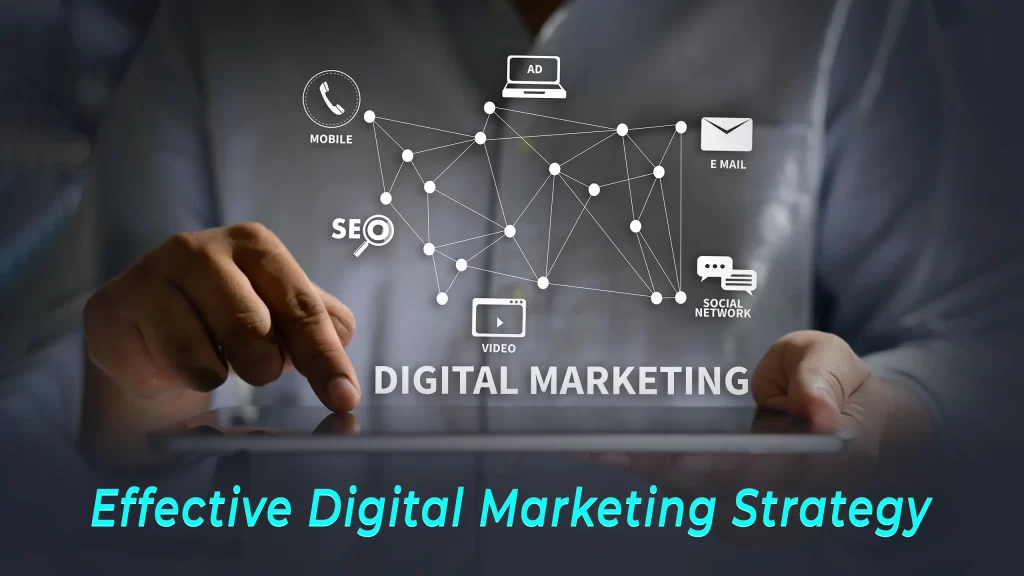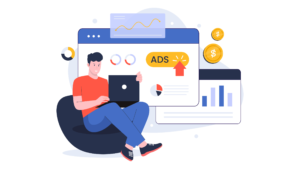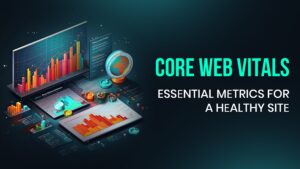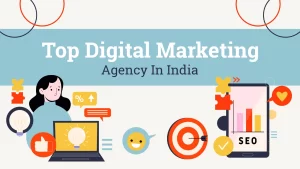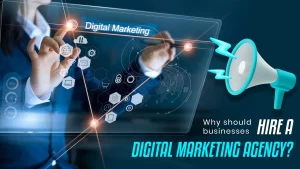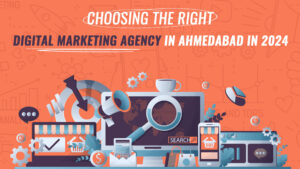In today’s fast-paced digital landscape, a robust and well-executed digital marketing strategy can significantly impact sales growth and extend the customer life cycle. As businesses increasingly shift towards online platforms, the competition for consumer attention has intensified. Therefore, having a comprehensive digital marketing strategy in place has become imperative to not only survive but thrive in the digital age.
Understanding Digital Marketing Strategy:
A digital marketing strategy encompasses a range of online tactics that collectively contribute to achieving marketing objectives, primarily centered around increasing brand visibility, driving website traffic, generating leads, and ultimately boosting sales. However, an effective strategy goes beyond mere transactional goals; it seeks to foster long-term relationships with customers, extending their life cycle and maximizing their lifetime value to the business.
Key Components of an Effective Digital Marketing Strategy:
Search Engine Optimization (SEO): Implementing strong SEO practices ensures that your brand is easily discoverable by potential customers when they search for relevant keywords. A well-optimized website ranks higher in search engine results, driving organic traffic and enhancing brand credibility.
Content Marketing: Creating valuable, relevant, and engaging content establishes your brand as an authority in your industry. Regularly publishing blogs, articles, videos, and infographics not only attracts prospects but also nurtures existing customers, increasing their loyalty and encouraging repeat purchases.
Social Media Marketing: Social media platforms provide a direct line of communication with your audience. Consistent and engaging social media content helps build a community around your brand, enabling you to interact with customers, address their concerns, and create a sense of belonging.
Email Marketing: Despite the rise of newer communication channels, email marketing remains a potent tool for customer engagement. Personalized and targeted email campaigns deliver relevant content to specific segments of your audience, driving conversions and keeping your brand top-of-mind.
Pay-Per-Click (PPC) Advertising: Strategic use of paid advertising, such as Google Ads and social media ads, ensures that your brand reaches potential customers at the right moment. PPC campaigns can be tailored to specific demographics and behaviors, maximizing the chances of converting leads into sales.
Extending Customer Life Cycle:
While increasing sales is a primary goal, focusing solely on transactional interactions can limit the long-term potential of your customer relationships. Extending the customer life cycle involves nurturing customer loyalty and turning one-time buyers into repeat customers and brand advocates. Here’s how your digital marketing strategy can contribute to this:
Personalization: Tailoring your marketing efforts based on customer preferences, behavior, and purchase history creates a personalized experience that resonates with individual customers. Personalization fosters a deeper connection, making customers more likely to stick around.
Retargeting: Through targeted advertising, you can re-engage customers who have previously interacted with your brand. By presenting relevant offers and reminders, retargeting encourages customers to return to your website and complete their purchase journey.
Customer Feedback and Engagement: Actively seeking customer feedback and engaging with their comments, reviews, and suggestions demonstrates that you value their input. This engagement not only improves the customer experience but also showcases your commitment to continuous improvement.
Loyalty Programs: Implementing loyalty programs that reward repeat purchases and referrals incentivizes customers to stay engaged with your brand. These programs enhance the sense of exclusivity and recognition, encouraging customers to remain loyal.
Remarketing Campaigns: Deploying strategic remarketing campaigns through email and social media keeps your brand on the radar of previous customers. Offering exclusive promotions or updates can entice them to make additional purchases.
In conclusion, a well-crafted digital marketing strategy is the cornerstone of sales growth and customer life cycle extension in the digital era. By leveraging a combination of techniques like SEO, content marketing, social media, email marketing, and PPC advertising, businesses can not only attract new customers but also foster enduring relationships that lead to sustained success. Through personalization, engagement, and loyalty initiatives, brands can ensure that each customer interaction contributes to a longer and more valuable relationship, ultimately increasing customer lifetime value and overall business success.

